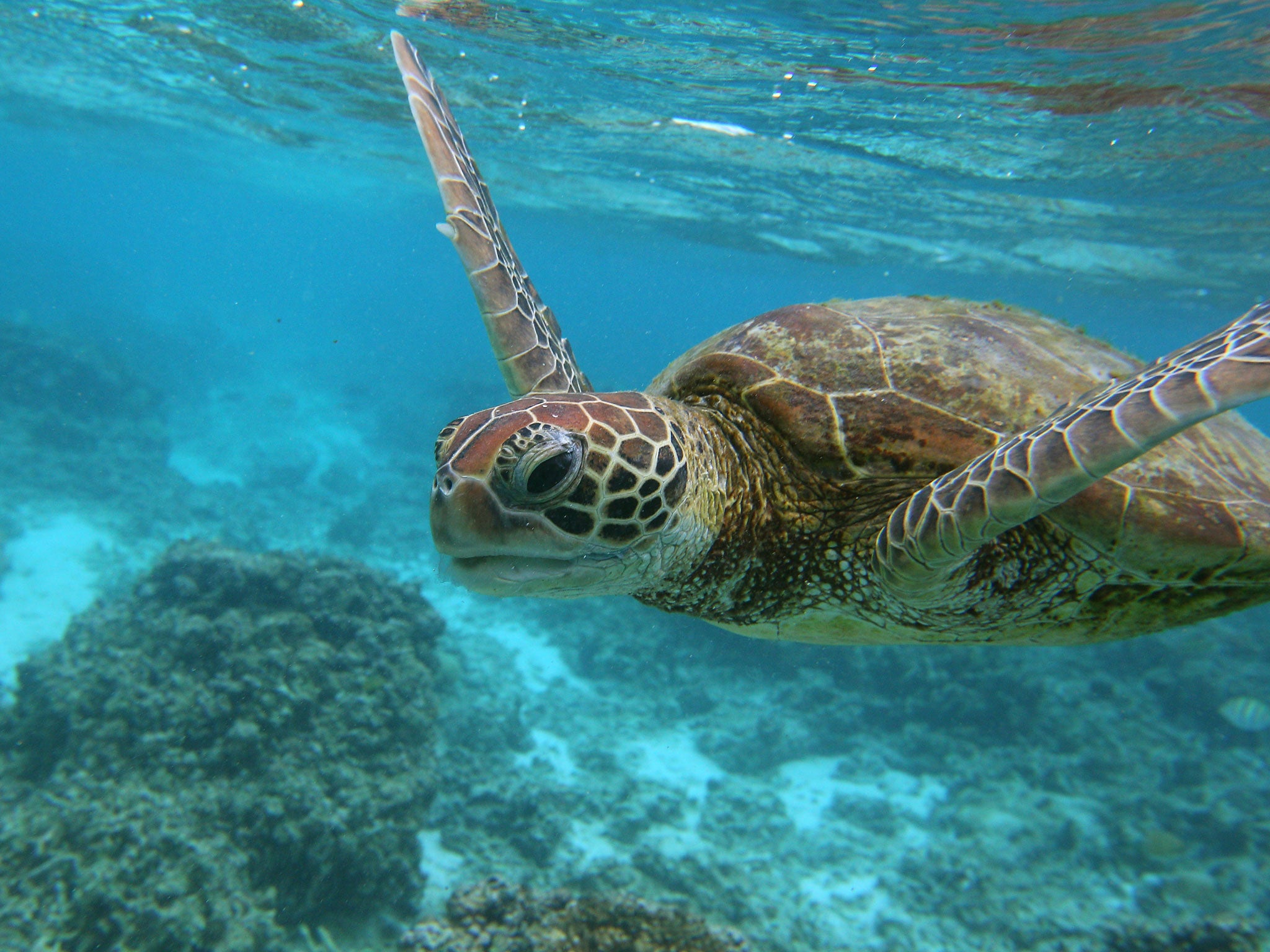Coral alert: destruction of reefs 'accelerating' with half destroyed over past 30 years
The eco-system has been around for tens of millions of years and we are wiping it out within a hundred, says IPCC scientist
Your support helps us to tell the story
From reproductive rights to climate change to Big Tech, The Independent is on the ground when the story is developing. Whether it's investigating the financials of Elon Musk's pro-Trump PAC or producing our latest documentary, 'The A Word', which shines a light on the American women fighting for reproductive rights, we know how important it is to parse out the facts from the messaging.
At such a critical moment in US history, we need reporters on the ground. Your donation allows us to keep sending journalists to speak to both sides of the story.
The Independent is trusted by Americans across the entire political spectrum. And unlike many other quality news outlets, we choose not to lock Americans out of our reporting and analysis with paywalls. We believe quality journalism should be available to everyone, paid for by those who can afford it.
Your support makes all the difference.The rapid decline of the world's coral reefs appears to be accelerating, threatening to destroy huge swathes of marine life unless dramatic action is swiftly taken, a leading ocean scientist has warned.
Click on image above to enlarge graphic
About half of the world's coral reefs have already been destroyed over the past 30 years, as climate change warms the sea and rising carbon emissions make it more acidic.
But the trend now looks to be accelerating, said Professor Ove Hoegh-Guldberg, the scientist in charge of the ocean chapter of the forthcoming report by the Intergovernmental Panel on Climate Change (IPCC).
"Our oceans are in an unprecedented state of decline due to pollution, over-fishing and climate change. The state of the reefs is very poor and it is continuing to deteriorate," said Professor Hoegh-Guldberg, of the University of Queensland.
"This is an eco-system that has been around for tens of millions of years and we are wiping it out within a hundred. It's quite incredible."
In addition to working on the IPCC report, Professor Hoegh-Guldberg is leading by far the most comprehensive assessment of the state of the world's coral reefs, the Catlin Seaview Survey (CSS). Its initial findings demonstrate that the reefs are getting "increasingly hammered" from all sides, he said.
"The coral reefs' decline seems to be accelerating rather than decelerating, but I would add the caviat that the ultimate evidence will come in about five years time," he added. That is because the CSS will be the first to provide a detailed worldwide picture of coral reefs, many of which have never been documented before. Only by comparing the result of this survey with the situation as it develops in the coming years can the true picture of the decline be known.
The CSS builds up a picture of the state of the world's coral reefs using a specially designed tablet-operated underwater camera that travels along sections of the reef collecting thousands of images using continuous high-resolution, 360-degree panoramic imagery.
The survey has just posted its results online so far - based on expeditions to the Great Barrier Reef, the Caribbean and Bermuda - so that it can be used by policy makers and scientists around the world.

Coral reefs - made from calcium carbonate secreted by tiny corals - are among the most biodiverse, or species-rich, habitats in the world. They support thousands of species, including tropical fish, whales, dolphins, turtles, birds, sea snakes and sea grass.
Because they are so rich in life, they are regarded as the "canary in the coal mine" for the ocean for the impacts of climate change and ocean acidification, in the same way that levels of Arctic ice are seen as the best barometer on land.
"Coral reefs are incredibly important to hundreds of millions of people who really on fishing for their livelihoods and for tourism - and for coastal protection, because the waves crash down on the reefs several hundred metres from the shore, protecting the coast and the food it provides," Prof Hoegh-Guldberg said.
The UN estimates that coral reefs directly support the livelihoods of nearly 300 million people and have an "economic value" of up to £107bn in research that attempts to put a price tag on the "natural services" it provides, such as being a nursery for fish and protecting the coastline.
The chapter on Oceans that Prof Hoegh-Guldbert is overseeing, jointly with one other scientist, will appear in the second part of the forthcoming IPCC report, which will be published in March. The first part will be published on Friday.
Although the outlook for coral reefs is dire, he said the battle has not yet been lost. For some reason, many of the reefs in Bermuda "are looking fairly good", he said, and this could provide lessons for how to protect reefs more generally.
Furthermore, reefs can recover relatively quickly if the pressure on them decreases. A significant global switch to renewable energy - while far from likely - would give the reefs a new lease of life.
"By the middle of the century, global temperatures could stabilise and ocean acidification could reverse - it's actually doable," Professor Hoegh-Guldberg said.
"If we go in the direction we are now, we are lost with no chance of recovery. But if we listen to what the IPCC report tells us, and take that advice, and get on and form the partnerships to do it, we can turn the situation around. But if we wait another 10 years, we'll be too far gone."
Join our commenting forum
Join thought-provoking conversations, follow other Independent readers and see their replies
Comments